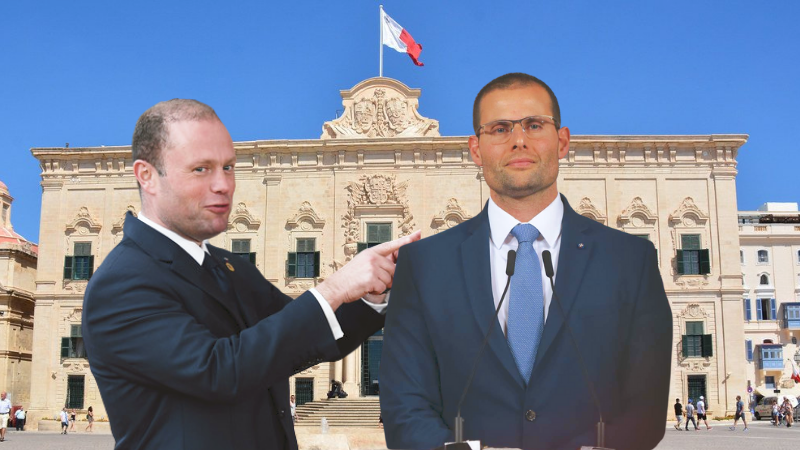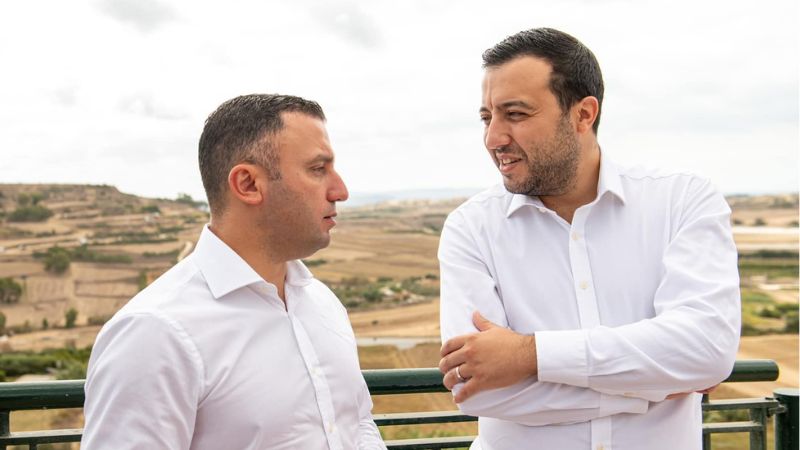When Joseph Muscat was prime minister, he regularly turned down requests for interviews with independent newsrooms, but not anymore.
After police searched his home as part of an investigation related to the Vitals Global Healthcare deal, Muscat took to social media to say, among other things, that he will give up his two years of “quiet”.
“If there is anybody who thought I will be intimidated or that I will be silenced, the result will be the opposite,” Muscat said. True to his word, Muscat has become more outspoken lately, both with the selected members of the press and on social media.
Muscat’s interview with Lovin Malta was a mixture of brief monologues, cryptic messages and unanswered questions, which is why The Shift decided to take a closer look at some of the statements by Muscat.
“In my opinion, with all due respect, the magistrate would first have heard what I had to say, and then if they want to search my home or do anything which they deem appropriate, they can”
Muscat is referring to when the police searched his home as part of a corruption investigation into the Vitals Global Healthcare (VGH) hospitals deal following revelations in November of how the former prime minister received €60,000 from Accutor AG, a company which in turn received millions from Steward Healthcare when it took over a contract to run three State hospitals from VGH.
During the interview, Muscat repeatedly referred to the police search as “theatrics” and reiterated that he had previously volunteered information about his work, but it had been ignored by the inquiring magistrate. He then proceeded to give his opinion of how the inquiring magistrate should be doing her job.
It is worth remembering that this is not the first time Muscat has had the audacity to lecture members of the judiciary on how they should be operating.
When the board of the public inquiry looking into the assassination of journalist Daphne Caruana Galizia questioned the disgraced former prime minister, he started by reading a statement criticising the inquiry board for the way the investigation was being conducted.
“As the person who appointed this inquiry (board) I think it is pertinent to remind you of the parameters of the inquiry,” he said. He argued that most questions during sittings did not align with the terms of reference and that previous administrations, the judiciary and the media were not scrutinised.
With all due respect indeed.
“The day the prime minister or the OPM decides not to give me access to it, I’m not there [anymore]”
Muscat said there is no contract or formal agreement and that he is allowed to use it as part of the severance package he received after resigning as prime minister in 2019.
When Muscat was asked to clarify whether he can remain in the office indefinitely so long as the prime minister keeps tolerating him, Muscat replied, “it’s the prime minister’s decision”.
Despite what Muscat and Prime Minister Robert Abela say about this “arrangement”, several legal experts told The Shift that Abela has no authority to approve the deal. “According to the laws of Malta, the government has no right to transfer any of its public property to third parties if not through a proper tendering process, also in the case of a lease or through an ad hoc parliamentary resolution,” a seasoned lawyer said.
“While none of this has been done, there is no other legal way in which any Maltese government can permit the use of public property by a third party. Technically speaking, in the eyes of the law, Muscat is squatting public property and the government is obliged to order his removal.”
Meanwhile, Robert Abela has refused to publish the terms of Muscat’s ‘severance package’ and his office has turned down a number of Freedom of Information requests by The Shift.
“It’s a couple of rooms which I can use and I’m not the first prime minister who was given [such an office]”
When the interviewer pushed Muscat to specify who he was referring to, Muscat retorted by telling the journalist to do his research.
This is exactly what The Shift did and found that, contrary to what Muscat said in the interview, there is no other former Maltese prime minister who has used public property as a personal office, except for Dom Mintoff, who was doing government work at the time.
“I think decision making, policymaking, even how to deal with people, shouldn’t have anything to do with social media or the pressure one gets from it”.
This is an odd criticism of the importance of social media when one considers how Muscat’s administration created, perfected and continued to harness the power of mob rule via online platforms.
When The Shift investigated six of the biggest pro-Muscat Facebook groups – numbering 60,000 members – it found violent, coordinated attacks on anyone who was perceived as a government critic, including anti-corruption activists, members of the Opposition and Daphne Caruana Galizia’s family.
The investigations also revealed how these groups were being used to drive an agenda and in the process, twisting events and the news cycle. The Shift observed how Labour Party activists would manufacture a scandal, the scandal would then be passed onto Labour Party-controlled media, the subsequent Labour media reports would then be used to bait pro-Muscat group members into reacting with outrage, directing their vitriol towards their chosen targets.
How did Labour propagandists react to Muscat’s home being searched by police? Valletta Cultural Agency chairman Jason Micallef used social media to urge Labour supporters to take to the streets, while Emanuel Cuschieri used it to warn Repubblika president Robert Aquilina that he’ll “give him a lesson he won’t forget” if he taunts former prime minister Joseph Muscat.
The vital role of social media in driving political agendas is here to stay.
“It stinks of hypocrisy that the Nationalist Party who gave out this [PA] contract to the office of Dr Abela is now criticising this contract”
This last statement was articulated towards the end of the interview so perhaps Muscat was getting tired and, running out of witty replies, resorted to a timeless favourite: “blame past Nationalist administrations”.
Muscat is referring to the Times of Malta report that saw a Planning Authority (PA) retainer for Robert Abela’s law firm more than double from €7,300 per month in 2013 to just over €17,000 in 2019.
The Opposition was not criticising the contract but the exorbitant increase in the retainer fee.
The contract was originally assigned to Abela’s father, George Abela in 2001 when he was a partner with planning law expert Ian Stafrace in Abela, Stafrace & Associates, but instead of issuing a fresh call for applications upon its expiry in 2011, the PA continued extending it by giving direct orders to Abela Advocates. The firm only renounced its long-standing brief when Abela became prime minister in January 2020.













Oh what webs they weave to obfuscate and obstruct the truth being disclosed.
My dear grandmother shared these pearls of wisdom with me when I was a young boy and was found to be being economical with the truth over some misdemeanour I had committed as a 7 or 8 year old :- “ Remember, to be a good liar, you need an even better memory”
Something the “ untouchables “ could well do with taking on board, because the truth will eventually out.